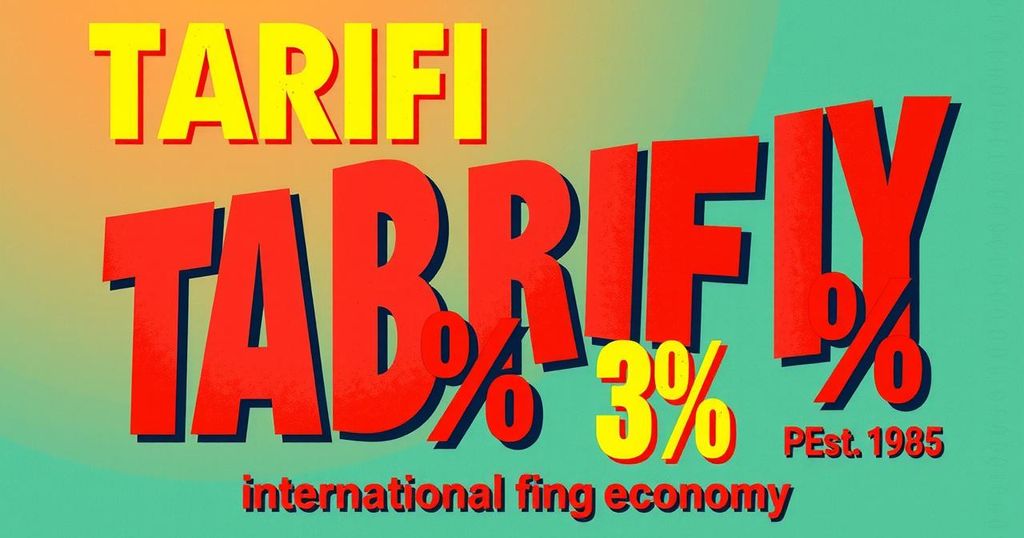Trump Implements Reciprocal Tariffs with Immediate Effect, Ratcheting Up Trade Tensions
President Trump has announced reciprocal tariffs of 37% on Bangladesh, among other rates for various countries, as a response to foreign duties on US goods. Aimed at reinforcing US manufacturing, the immediate implementation of these tariffs escalates trade tensions and raises concerns over potential economic repercussions, including increased consumer costs and retaliatory countermeasures from affected nations.
On April 3, President Donald Trump announced the implementation of significant reciprocal tariffs as part of an aggressive trade policy aimed at responding to duties imposed by other nations on US goods. The immediate effect of this policy entails a 37% tariff on imports from Bangladesh, alongside similar tariffs on several other countries, including 26% on India and 34% on China. This measure marks a notable escalation in the ongoing trade tensions that Trump reignited upon returning to the White House.
During a press conference in the Rose Garden, Trump illustrated the new tariffs on a poster, expressing that it represents a step toward reclaiming economic independence. New baseline tariffs of 10% will be established on all imports, further complicating the trade landscape and possibly instigating retaliation from affected countries, leading to increased costs for consumers.
Furthermore, the significant augmentation of tariffs encroaches upon the established protocols of trade liberalization that have characterized global commerce for decades. The expected countermeasures from trading partners could lead to widespread price hikes on various products, from bicycles to wine. A detailed display of new rates included tariffs targeting nations such as Pakistan at 29%, Myanmar at 44%, and Vietnam at 46%, among others.
Financial markets and businesses have already begun to feel the repercussions of these tariff announcements, with apprehensions stirring over potential economic instability and increased consumer costs. While Trump’s advisors suggest these tariffs aim to restore vital manufacturing capabilities within the US, economists caution that imposing such duties could inadvertently slow global economic growth and may contribute to a recession.
As the announcement leads to uncertain trading environments, manufacturing activity has decelerated across the world, and consumers are pressured to purchase goods before anticipated price hikes. The volatility in financial markets was pronounced, with US stocks experiencing considerable declines since February, amounting to nearly $5 trillion in lost value during this turbulent period.
In summary, President Trump’s recent announcement of reciprocal tariffs represents a significant shift in US trade policy, potentially destabilizing established economic relations. By introducing high tariffs on several countries, including a notable 37% on Bangladesh, the administration aims to counterbalance duties already imposed on US products. However, experts express concerns about the potential long-term effects on the economy, signaling heightened consumer costs and possible retaliatory actions from trade partners. The uncertainty surrounding these changes reflects a pivotal moment in global trade dynamics.
Original Source: www.tbsnews.net








Post Comment